#Robb Murphy
Text
Tagging
Y'all need start tagging y'all fanfics correctly. I don't want to read y'all sucking dick. Y'all be doing that on purpose.
You giving head while they used to chop off yours.
It's not feminist if you're attacking women for being uncomfortable with something. Fiction or not.
#rick grimes x reader#steve harrington x reader#robb stark x reader#jon snow x reader#ethan winters x reader#thor x reader#inumaki toge x reader#arthur morgan x reader#john marston x reader#erwin smith x reader#levi ackerman x reader#kakashi x reader#eddie munson x reader#gojo satoru x reader#sukuna x reader#nanami kento x reader#getou suguru x reader#eren jaeger x reader#jean kirstein x reader#jake sully x reader#reiner braun x reader#armin arlert x reader#mike zacharias x reader#zeke jaeger x reader#cillian murphy x reader#billy hargrove x reader#tommy shelby x reader#thomas shelby x reader#steve rogers x reader#bucky barnes x reader
279 notes
·
View notes
Text
Fanfic Writers
Why are y'all so restarted.
#rick grimes x reader#steve harrington x reader#robb stark x reader#jon snow x reader#ethan winters x reader#thor x reader#inumaki toge x reader#arthur morgan x reader#john marston x reader#erwin smith x reader#levi ackerman x reader#kakashi x reader#eddie munson x reader#gojo satoru x reader#sukuna x reader#nanami kento x reader#getou suguru x reader#eren jaeger x reader#jean kirstein x reader#jake sully x reader#reiner braun x reader#armin arlert x reader#mike zacharias x reader#zeke jaeger x reader#cillian murphy x reader
52 notes
·
View notes
Text
'It can be said that Christopher Nolan has always known how to end a movie. From Leonard Shelby concluding his journey where it began and asking “now where was I?” in Memento to the topper that wouldn’t stop spinning in Inception, this is a filmmaker who looks for the most potent image that will burrow its way into audiences’ heads.
Yet the final scene of his most ambitious film to date is something more impressive, if altogether disquieting. Oppenheimer definitely implants a grim idea in the viewer’s mind, but it does so by giving the uncanny impression that we are seeing it through J. Robert Oppenheimer’s eyes first. Standing by the duck pond that Albert Einstein (Tom Conti) has been consigned to by posterity, and where Oppie will be joining him in exile sooner than he realizes, the man credited with fathering the atomic bomb asks if Albert recalls Edward Teller’s theory about a nuclear explosion triggering the end of the world.
“I remember it well, what of it?” Einstein asks. “I believe we did,” Oppenheimer says while an IMAX camera plummets so deeply into Cillian Murphy’s blue eyes that the viewer feels like we are being left to drown in his despair—despair at the prospect of nuclear war, despair at self-annihilation, and the lingering, eternal despair that comes with the realization that for the rest of time on this planet, these weapons will be at humanity’s disposal. It’s a chilling signoff for a film that plumbs the ambiguities of Oppenheimer’s life without offering easy answers. While Nolan made a picture accessible to almost any viewer, he refused to provide any degree of comfort, reassurance, or easily memeable sentiment and message.
Which is one of the many reasons I’ve long been skeptical of the common criticism about Oppenheimer being too long or that “the trial” in the last hour dragged on and on. More than once, I’ve been told the movie could have ended after Trinity, the first successful detonation of a nuclear weapon on July 16, 1945 which is shot and edited with all the tension of a thriller in Nolan and Jennifer Lame’s hands. It should be noted that the Trinity test, and the exuberant satisfaction Oppenheimer briefly feels toward his accomplishment as fellow scientists hoist him on their shoulders before the American flag, occurs at exactly the two-hour mark in the film.
The implication, therefore, seems to be that Oppenheimer should have ended on a note of triumph—a disastrous choice, to put it mildly, for the story of engineering a doomsday weapon—or that the movie could have glossed over Oppenheimer’s later years. Why should we care if Oppenheimer’s security clearance with the Atomic Energy Commission (AEC) was revoked, or that the architect of his downfall, Lewis Strauss (Robert Downey Jr.), suffered his own public humiliation?
The answer, of course, is that it is these turns of events which elevate a riveting piece of biographic storytelling into a cinematic prophecy of doom that on its own will likely be with us for many years to come.
Living with the Bomb
The most crucial thing to understand about why Oppenheimer went on for a full third hour after World War II concluded in the shadow of a mushroom cloud is that there is no credible way to discuss this man without delving into the fact that the government which entrusted him to build the device also pillared and besmirched his name to the point of infamy.
During a panel with Meet the Press’ Chuck Todd on the 78th anniversary of the Trinity test, Nobel Prize Laureate and theoretical physicist Kip Thorne said he knew scientists early in his career who demurred from pursuing a public life in government service or policy-making because of how Oppenheimer was treated.
Said Thorne, “I was as much influenced by my father who dealt with McCarthyism as the chair of a faculty in Utah at the time. We had a governor who was dictating to the board of trustees to fire faculty with left wing tendencies. So I went through this in my own family.”
The implication that Oppenheimer was a traitor, or at least untrustworthy with American secrets due to his political leanings, sent a chill through academia and government institutions that lasted for generations. With a simple letter speciously raising doubts about Oppenheimer’s loyalty to his country, William L. Borden (who was working as a proxy for Strauss) was able to discredit and muzzle the most respected scientific mind of the 20th century in American life; the man who ended World War II and brought our boys home. If the far-right could do that to him because he expressed vocal opinions about the hydrogen bomb, no one was safe.
So any biopic about Oppenheimer legitimately needed to cover a life that eerily matched the arc of Greek tragedy to a tee. After all, historians Kai Bird and Martin Sherwin named their definitive biography on the man American Prometheus, and what is a Promethean tale if you skip the part where the gods condemn him to be chained to a rock so his guts will be pecked out each morning?
Oppenheimer dramatizes these elements, and does so with spectacular detail and specificity. Even biographer Bird remarked with astonishment at the same Trinity anniversary panel that Nolan did something he and Sherwin had not: he went through the transcript of Lewis Strauss’ failed confirmation hearing and discovered a surprise witness named Dr. David Hill (Rami Malek in the movie), who was called on to essentially smear an unprepared Strauss with the same kind of one-sided testimony Strauss used to decimate Oppenheimer in his security clearance hearing five years earlier. The dramatic irony that this was done as revenge by the scientific community against the political class’ most envious party was not lost on Nolan.
In fact, it creates one-half of the climactic crescendo wherein Strauss raves after his Cabinet post begins slipping away that “I gave [Oppenheimer] exactly what he wanted: to be remembered for Trinity! Not Hiroshima! Not Nagasaki! He should be thanking me!” Of course Strauss’ fury also articulates why the film is so much richer and, ultimately, ambiguous. It explores part and parcel the facts of Oppenheimer’s life, and in doing so invites you to descend down into the pits of Hades.
A Trial Without a Jury or a Verdict
The most powerful sequence in Oppenheimer arguably occurs at the top of the third hour. After an exhilarating taste of success and triumph, Oppenheimer is left out of the final, gruesome moments of World War II. Two nuclear bombs fell on the cities of Hiroshima and Nagasaki in the span of three days in August 1945. Two hundred twenty thousand lives were snuffed out in biblical fire or the lingering, years-long horror of radiation poisoning. And J. Robert learns about it just like every other American—by listening to the radio.
Then comes Nolan’s cinematic flourish. He lets you live in Oppie’s nightmare just as it is beginning to coalesce. While giving a patriotic speech crowing about the success of the nuclear weapons’ use on Japanese cities, Oppenheimer’s unconvincing stabs at jingoism fade away as he can only hear the sound of a woman screaming; then comes a bright light as the face of a young girl melts away. It is a new world for Oppenheimer, America, and the whole the human species. But only after he has let the genie out of the bottle does the film’s interpretation of Oppenheimer begin to seriously grapple with the long term ramifications of that release.
There is an argument to be made that Oppenheimer should have shown the nuclear holocaust inflicted on the Japanese people. I respect this opinion, although Nolan’s choice to trap you in Oppenheimer’s large, yet still limited, vantage point is the dramatically right one. It took this scientist years to come to terms with the horror of what he wrought on Japan, and the movie lets it slowly seep in.
There is also the uncomfortable fact that this story is bigger than just World War II. In the film, Oppenheimer considers the irony that his former tutor opined in the press that the nuclear bomb not so much ended World War II as it began what we now call the Cold War with the Soviet Union (which really happened). But the point of the Oppenheimer film is that what those scientists at Los Alamos did was bigger than just World War II or the Cold War—or even the 20th century itself.
Oppenheimer built, sharpened, and fastened a global Sword of Damocles above our collective heads, and it hangs there still. It will, in fact, hang there forever, unless one nation finally pushes the button and invites the inevitable response.
The last hour is about Oppenheimer, as a character and a film, coming to terms with that legacy. This is not a typical biopic about a great man, but a portrait of a soul damned by unspoken regrets and second-guesses that he never articulated to anyone. The film even posits Oppenheimer went through the humiliation of an unwinnable security clearance hearing as some form of penance for fathering the bomb.
“Did you think if you let them tar and feather you that the world will forgive you?” his wife Kitty (Emily Blunt) asks. “It won’t.”
“We’ll see” is Oppenheimer’s cryptic response. While we suspect Oppenheimer’s fight for political survival was not quite so history book-minded, the reality is he truly did tell the President of the United States “I have blood on my hands,” and spent the rest of his brief public life attempting to steer the United States away from the infinitely more deadly hydrogen bomb and the arms race it inevitably courted. He was then banished to the duck pond next to Einstein for his troubles.
Dramatically seeing that destruction is as cathartic as it is disturbing, with Jason Clarke’s government attorney Roger Robb embodying Zeus’ hungry eagle which is always eager to feast on Prometheus’ liver. It should be noted, this context also is what allows Kitty Oppenheimer, a brilliant woman whose mind is left to curdle by the oppressive expectations of her era, to finally speak candidly in one of the best scenes in the movie.
In the end though, the finale asks the audience to interrogate Oppenheimer the man. Can you forgive him? Should you even bother entertaining the idea? The real man never publicly admitted remorse over what happened in Japan, and whether he felt profound guilt or not, he still ushered in a nuclear age without end. There is no escape from the future Oppenheimer has wrought—not even for J. Robert Oppenheimer, who is professionally and spiritually destroyed by the legacy he pursued with wide open arms.
The last hour of Oppenheimer is not about the father of the atomic bomb; it’s about the father of our tomorrow and each and every one that will come after. Until one day, maybe it won’t.'
#Oppenheimer#Christopher Nolan#Cillian Murphy#Kitty#Emily Blunt#Einstein#Tom Conti#Memento#Inception#Edward Teller#Jennifer Lame#IMAX#Lewis Strauss#Robert Downey Jr.#Kai Bird#Martin J. Sherwin#American Prometheus#Jason Clarke#Roger Robb
8 notes
·
View notes
Text
🍒 𝐌𝐚𝐬𝐭𝐞𝐫𝐥𝐢𝐬𝐭 𝐨𝐟 𝐦𝐲 𝐅𝐢𝐜𝐬 [42]
25ᴛʜ ᴍᴀʀᴄʜ 2024
ᴇ = ᴇxᴘʟɪᴄɪᴛ
ᴍ = ᴍᴀᴛᴜʀᴇ
ᴛ = ᴛᴇᴇɴ
ɢ = ɢᴇɴᴇʀᴀʟ
𝘽𝙧𝙚𝙖𝙠𝙞𝙣𝙜 𝘽𝙖𝙙 [1]
ᴡᴀʟᴛᴇʀ ᴡʜɪᴛᴇ/ᴊᴇꜱꜱᴇ ᴘɪɴᴋᴍᴀɴ
(Anal)ysis of Jesse Pinkman | E
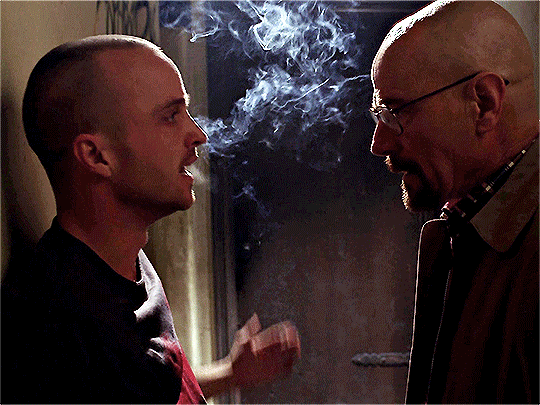
𝘾𝙧𝙞𝙢𝙞𝙣𝙖𝙡 𝙈𝙞𝙣𝙙𝙨 [3]
ᴅᴇʀᴇᴋ ᴍᴏʀɢᴀɴ/ꜱᴘᴇɴᴄᴇʀ ʀᴇɪᴅ
Blooming Luck – Heather | E
Peaceful Beauty – Hyacinths | E
Renewed Spring – Lilac | E
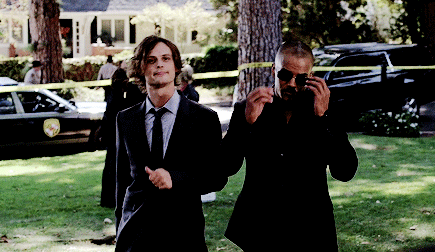
𝘿𝙚𝙩𝙧𝙤𝙞𝙩: 𝘽𝙚𝙘𝙤𝙢𝙚 𝙃𝙪𝙢𝙖𝙣 [4]
ʀᴋ800/ʀᴋ900 (ʀᴋ800 & ʀᴋ900)
Don't Go, You're Half Of Me Now | T
Sweet Creature | E

ʀᴋ800/ᴇʟɪᴊᴀʜ ᴋᴀᴍꜱᴋɪ (ʀᴋ800 & ᴇʟɪᴊᴀʜ ᴋᴀᴍꜱᴋɪ)
Borrowed A Love (That Never Came) | T
Fill My Lungs With The Air Your Heart Is Breathing | E

𝙁𝙖𝙣𝙩𝙖𝙨𝙩𝙞𝙘 𝘽𝙚𝙖𝙨𝙩𝙨 𝙖𝙣𝙙 𝙒𝙝𝙚𝙧𝙚 𝙩𝙤 𝙁𝙞𝙣𝙙 𝙏𝙝𝙚𝙢 (𝙈𝙤𝙫𝙞𝙚𝙨) [1]
ᴘᴇʀᴄɪᴠᴀʟ ɢʀᴀᴠᴇꜱ/ɴᴇᴡᴛ ꜱᴄᴀᴍᴀɴᴅᴇʀ
Liquid Sunshine | E

𝙁𝙧𝙚𝙞𝙚𝙧 𝙁𝙖𝙡𝙡 | 𝙁𝙧𝙚𝙚 𝙁𝙖𝙡𝙡 [1]
ᴍᴀʀᴄ ʙᴏʀɢᴍᴀɴɴ/ᴋᴀʏ ᴇɴɢᴇʟ
And Suddenly, It Felt Like A Free Fall | E
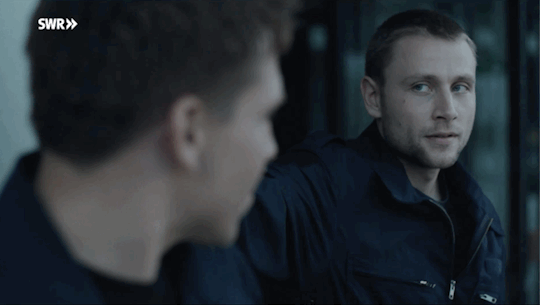
𝙂𝙖𝙢𝙚 𝙊𝙛 𝙏𝙝𝙧𝙤𝙣𝙚𝙨 [2]
ᴊᴏɴ ꜱɴᴏᴡ/ʀᴏʙʙ ꜱᴛᴀʀᴋ
Claiming His Bitch | E
He Was Worth It In The End | E
𝙃𝙖𝙣𝙣𝙞𝙗𝙖𝙡 [2]
ʜᴀɴɴɪʙᴀʟ ʟᴇᴄᴛᴇʀ/ᴡɪʟʟ ɢʀᴀʜᴀᴍ
I want your Violence, your Wrath and Salvation | E
Volatile Hunger (Signed H.L.) | E
ʜᴀʀʀʏ ᴘᴏᴛᴛᴇʀ/ꜱɪʀɪᴜꜱ ʙʟᴀᴄᴋ
𝙃𝙖𝙧𝙧𝙮 𝙋𝙤𝙩𝙩𝙚𝙧 [1]
All Of Our Sins In The Daylight | E
𝙋𝙚𝙣𝙣𝙮 𝘿𝙧𝙚𝙖𝙙𝙛𝙪𝙡 [1]
ᴇᴛʜᴀɴ ᴄʜᴀɴᴅʟᴇʀ/ᴅᴏʀɪᴀɴ ɢʀᴀʏ
Souls Tied, Intertwined By Our Pride And Guilt | E

𝙏𝙚𝙚𝙣 𝙒𝙤𝙡𝙛 [21]
ꜱᴛɪʟᴇꜱ ꜱᴛɪʟɪɴꜱᴋɪ/ᴅᴇʀᴇᴋ ʜᴀʟᴇ
(K)Not Tonight | E

ꜱᴛɪʟᴇꜱ ꜱᴛɪʟɪɴꜱᴋɪ/ᴘᴇᴛᴇʀ ʜᴀʟᴇ
The Moth In The Mirror | E
(Un)Lucky Incidents | E
Will You Stay (On My Mind)? | E
I'll Bring You Home (It's Been So Long) | E
The Summer Air By The Seaside | E
His Touch Brought Forth An Incandescent Glow | E
I Want You Now (Wanna Need You Forever) | E
Cinnamon Sugar and Stardust | E
Twilight | E
Blood So Rare And Sweet As Cherry Wine | E
There's A Strange Love Inside (It's Getting Louder) | E
Something Meaty For The Main Course | E
The Smell Of Smoke Would Hang Around This Long | E
What if all I need is You? | T
So in Awe, there I stood as you licked off the Sage | E
Feeling Knotty | E
Fell in love with the Flame who built me a Cage | E
It Will Wither (Ours Won't) | E
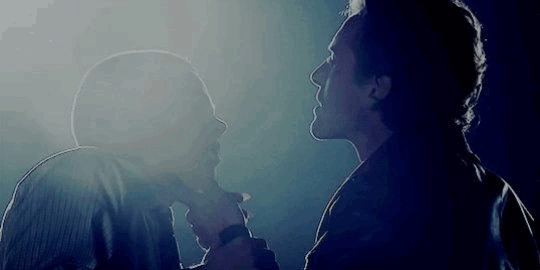
ꜱᴛɪʟᴇꜱ ꜱᴛɪʟɪɴꜱᴋɪ/ᴊᴏʀᴅᴀɴ ᴘᴀʀʀɪꜱʜ
The Hellhound and his Human | E
I Think I've Seen This Film Before (And I Didn't Like The Ending) | E
𝙏𝙝𝙚 𝙂𝙤𝙤𝙙 𝘿𝙤𝙘𝙩𝙤𝙧 [1]
ꜱʜᴀᴜɴ ᴍᴜʀᴘʜʏ/ɴᴇɪʟ ᴍᴇʟᴇɴᴅᴇᴢ
Rainy Days And Love Confessions | T
𝙏𝙝𝙚 𝙌𝙪𝙖𝙧𝙧𝙮 [3]
ɴɪᴄᴋ ꜰᴜʀᴄɪʟʟᴏ/ᴊᴀᴄᴏʙ ᴄᴜꜱᴛᴏꜱ
Colourful Rainstorms (Repeat Until Dawn) | E
Cold Sheets (Oh Where's My Love?) | E
ʀʏᴀɴ ᴇʀᴢᴀʜʟᴇʀ/ᴅʏʟᴀɴ ʟᴇɴɪᴠʏ
Moonlight Shenanigans | E
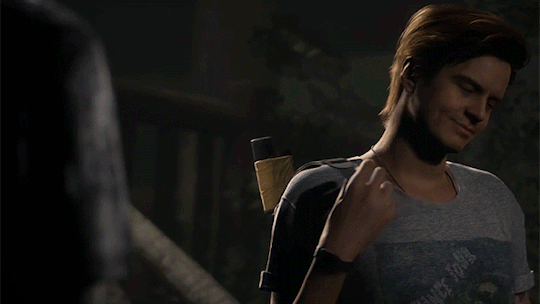
𝙄𝙩 𝙇𝙞𝙫𝙚𝙨 (𝙑𝙞𝙨𝙪𝙖𝙡 𝙉𝙤𝙫𝙚𝙡𝙨) [1]
ᴍᴀᴛᴛʜɪᴀꜱ ᴍᴄQᴜᴏɪᴅ/ᴍᴀɪɴ ᴄʜᴀʀᴀᴄᴛᴇʀ
Come Doused In Mud, Soaked In Bleach (As I Want You To Be) | E
#ethan chandler x dorian gray#gramander#stiles stilinski x peter hale#stiles stilinski x derek hale#stiles stilinski x jordan parrish#walter white x jesse pinkman#derek morgan x spencer reid#rk800 x rk900#rk800 x elijah kamski#percival graves x newt scamander#marc borgmann x kay engel#jon snow x robb stark#shaun murphy x neil melendez#nick furcillo x jacob custos#dead dove do not eat#it lives within#harry x sirius#hannibal lecter x will graham#🐺🐌.txt
10 notes
·
View notes
Text








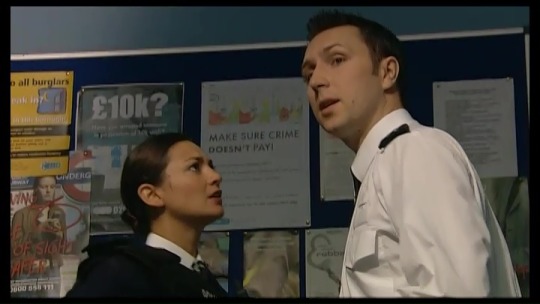
Smiffina Episodes - Episode 268
We start where the last episode left off - but suddenly now there's lots of people around for Smithy to yell at to get back in the flats and out the line of fire whilst he checks both Kirkby and Gabriel.

Spotting the sniper running from the roof, Smithy takes the chance to run towards the building to try catch him, running up the fire escape. Unfortunately he doesn't get chance to as by the time he gets there the sniper has potentially disappeared inside the building and baricaded the only way Smithy could get inside from the roof.
Gabriel is now back on his feet, wanting to get to Smithy to 'help' him search but Adam appears and orders him to the hospital before he can. At the station, Andrea rings Bruce to tell him about the shooting, interupted by Jack and Neil appearing before she can continue. Kirkby has been shot in the lower back and is critical. If he survives, he may never walk again.
Rowan and Adam join Smithy on the roof and discuss the shot and the sniper. Smithy finds a boot print near the door that leads to inside the building. "... It ain't mine."
Gabriel tries to discharge himself but Jack refuses to let him,. telling him he could have been the target and he has to stay overnight - with an armed officer as guard.
Andrea asks Smithy if he's cross with her because he told Gabriel about him being the one to report the accusation to MIT. Smithy says he's bigger things to worry about - like the sniper, and feeling guilty for 'letting' the sniper get away.
Gabriel speaks to Kirkby before he left, reassured he saw nothing. Morell arrives just in time and asks why Gabriel shouted for them to get down before the shot. Gabriel plays dumb, he doesn't know why he did it... perhaps something caught his eye, perhaps it was birds flying. He refuses to answer. Morell tells him that he's likely the intended target given Kerry's murder. He gives his armed officer the slip and leaves the hospital.
Uniform are having to wear body armour and go around with SO/CO19 officers. CID aren't - it's because it appears they're targeting uniform... but given Kerry wasn't wearing her uniform at the time, surely CID should be supported too if they're working on the idea that it's the police who are the targets?
Sheelagh and Leela are directed by neighbours to a man who they say 'is as shady as you like, involved in all sorts on the estate and has a gun'. They go to speak to him... with Sheelagh initially more interested at accusing Leela of stabbing her (Sheelagh's) friend at Barton St in the back than speaking to the suspect. For a woman who used to be Sgt until a few weeks ago, Sheelagh is laughably clueless at people management.

The man tells Sheelagh and Leela that they dislike him and call him a nonce and put faeces through his letter box. He admits he uses a water pistol to scare children off but doesn't have a gun.
Gabriel charges round to the 'friend' who has been working in allegience with him, furious that he dare do a job off his own back without Gabriel setting it up in advance. "You only shoot the people I tell you to!" The sniper admits he had to leave his van behind because Smithy run after him and 'messed everything up'. He's leaving because if they find the van and look into it, it's a link back to him. He tells Gabriel he shot Kirkby because Gabriel was arresting him and he so he thought he was scum. Gabriel asks why he started branching out alone and the sniper tells him he wanted to teach Gabriel a lesson. He tells him he messed up when he shot Kerry using his gun and his bullets and it would be him with his head in the noose if they found him. He's fed up of Gabriel calling the shots and wants to be the one making the decisions. He knows the truth about Gabriel being David Kent and pretending to be his brother - he's dangerous... not least when he holds Gabriel at gunpoint. Gabriel uses manipulation to talk him round and tells him that he'll go to the station and find out what they know - and make sure it doesn't come back on the sniper.
Gabriel meets Rowan at the scene of the sniper assault and questions her about the van that they're looking at. He asks if there's any leads. Rowan makes it back to the station before Gabriel and tells Smithy about her meeting with him. Both are suspicious about what Gabriel is up to. Gabriel returns to the sniper and tells him they've got a witness, a bootprint and are looking into the van after finding where he shot from. The sniper tells him to sort it out - if he goes down he'll take Gabriel down with him.
Smithy questions Gabriel once he finally arrives, on why he's hours later than he said he'd be. He questions if he's suffering delayed shock and tries to send him home. He tells him he knows what it's like to be shot at and that it shakes you up. Gabriel spaces out for a moment and mentions Kerry's death - Smithy questions it and Gabriel quickly covers saying he meant Kirkby and got confused. Smithy's even more suspicious, trying to work through what it means.
Gabriel thinks he's covered his back for the mean time, though that theory is blown out of the water when he walks into a room to find Suzie and Ken watching CCTV footage of the sniper hiring a van - right as the sniper turns to give a full view of his face on the screen.
#Alex Walkinshaw#Smithy#Dale Smith#Andrea Dunbar#Natalie J Robb#Sheelagh Murphy#Bernie Nolan#Gabriel Kent#Todd Karty#Rowan Morell#Tanya Franks#Episode 268#Smiffinalong#the bill
2 notes
·
View notes
Text
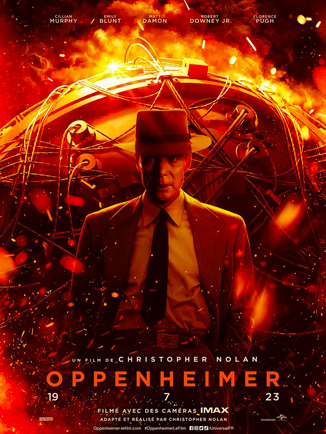
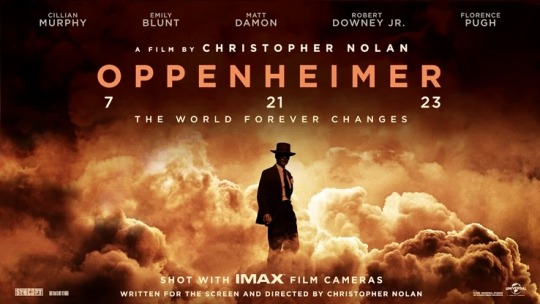
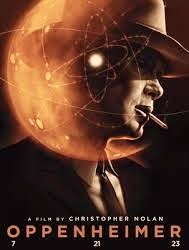
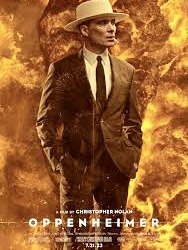
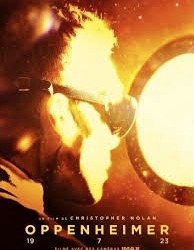

"Oppenheimer" biopic de Christopher Nolan - adapté du livre "American Prometheus: The Triumph and Tragedy of J. Robert Oppenheimer" de Kai Bird et Martin J. Sherwin (2005) sur le "Père de la bombe atomique" J. Robert Oppenheimer (1904-1967) - avec Cillian Murphy, Emily Blunt, Florence Pugh, Matt Damon, Josh Harnett, Robert Downey Jr., Kenneth Branagh, Rami Malek, Dane DeHaan, Benny Safdie, David Krumholtz, Casey Affleck, Dylan Arnold, David Dastmalchian, Jason Clarke et Gary Oldman, juillet 2023.
#films#WWII#Biopic#hommage#spirit#Oppenheimer#Tatlock#Murphy#Groves#Strauss#Lawrence#Einstein#Truman#Nichols#Robb#Pash#Hill#Bohr#Teller#Rabi#Nolan#Bird#Sherwin#Blunt#Pugh#Damon#Harnett#Downey#Branagh#Malek
2 notes
·
View notes
Text
A Christmas Story Christmas (2022, dir. Clay Kaytis) - review by Rookie-Critic

I'm not going to lie, A Christmas Story Christmas had me worried at first. It already had some tall shoes to fill in following up what has always been my favorite Christmas movie, A Christmas Story (a lot of that is probably fueled by nostalgia, but I don't care it brings me so much joy every Christmas). I watched it on Christmas day with my family (most of whom had already seen it), and for the first 20 minutes of the film the vibe felt off. I can't put my finger on it, but it didn't seem like what the sequel to A Christmas Story should be. Peter Billingsley was there, and he was for sure acting like Ralphie, but it wasn't clicking for me. That was, until they brought in Flick and Schwartz (Ralphie's two best friends from the original film). After that it was like a switch flipped. I was laughing almost the entire time, and when I wasn't I was at least grinning. The whole experience made a complete 180 from where I had started the film at.
I want to really take a moment to applaud this movie for knowing the difference between homage and unoriginal retreading. A Christmas Story Christmas could have easily slid by on taking the events of the original and copy/pasting them into the events of this movie, and while there are moments that are similar in the sense that the same thing is occurring (bargaining for the Christmas tree, children getting bullied by the neighborhood menaces, a "triple-dog dare" situation), it's always either flipped on its head or framed in a way that gives it new relevance. The film adds in a handful of its own, original gags as well, and adds some welcome new pieces of Parker family Christmas lore (their attitude towards carolers being chief among them). All the returning characters are played expertly by their original actors, with the exception of Mrs. Parker, who is being played by Julie Hagerty (who you might know from Airplane) instead of Melinda Dillon this time around. Hagerty does a pretty good job of stepping into Dillon's shoes, and the change is barely felt at all. The main new additions to the cast, Ralphie's wife, Sandy (played by Erinn Hayes), and children Mark & Julie, don't quite fit right in with the eclectic cast of characters surrounding them, but the film does this intentionally and uses it as a further vehicle for humor. Hayes plays a great "fish out of water" character among the residents of Hohman, Indiana, and deserves just as much praise as the legacy cast members do for her performance.
Outside of the film's humor, there's a surprising amount of great emotional moments, as well. I found myself on the verge of tears multiple times and even allowing a full cry during a particularly emotional scene towards the end of the film. The movie pays massive homage to the late Darren McGavin, who played the father in the original film (or as he is referred to in both the original and this one, The Old Man), and it's in those scenes that the movie finds its heart. Is A Christmas Story Christmas actually as good as I'm making it out to be? Possibly not, it could be that I'm tying my nostalgic love for the original Christmas Story to this one and can't look past it, but at the very least this should be a relief and an absolute treat to those who love the original film like I do. Just make sure not to discount it based on the first handful of scenes.
Score: 8/10
Currently streaming on HBO Max.
#A Christmas Story Christmas#A Christmas Story#Clay Kaytis#Peter Billingsley#Erinn Hayes#Julie Hagerty#River Drosche#Julianna Layne#Scott Schwartz#R. D. Robb#Ian Petrella#Zack Ward#Yano Anaya#Davis Murphy#Henry Miller#film review#movie review#2022 films
0 notes
Video
youtube
A Christmas Story Christmas Trailer
Ralphie Parker is once again under a lot of Christmas stress...this time as an adult and dad.
A Christmas Story Christmas stars Peter Billingsley (Ralphie), Erinn Hayes (Sandy), Julianna Layne (Julie), River Drosche (Mark), Scott Schwarts (Flick), RD Robb (Schwartz), Ian Petrella (Randy), David Murphy (Delbert Bumpus), Zack Ward (Scut Farkus), Julie Hagerty (Mrs. Parker/Ralphie’s mom). Clay Kaytis directs from a screenplay by Nick Schenk and Kaytis. The screen story is by Schenk and Billingsley and is based on Jean Shepherd’s book In God We Trust, All Others Pay Cash.
A Christmas Story Christmas hits HBO Max on November 17, 2022.
#christmas story christmas#peter billingsley#erinn hayes#julianna layne#river drosche#scott schwartz#rd robb#ian petrella#davis murphy#zack ward#julie hagerty#clay kaytis#nick schenk#jean shepherd#warner bros#hbo max#TGCLiz
1 note
·
View note
Text
hi hello i think it’s time that i actually introduce all of my OCs? because i truly have so many and i never actually talk about half of them. so below you will find all my OCs! along with short bullet point explanations of their characters. if they have an OC sheet, that’ll be linked— as well as any fic i have posted about them. i’ve also included links to my vibes page (@vibesforlee) where i’ve got tags for each of my OCs.
Fandoms Below Include: Star Wars, A Song of Ice and Fire, Percy Jackson, Marvel, Chronicles of Narnia, Critical Role, Avatar The Last Airbender, and Top Gun: Maverick
so uhhhh yeah i hope this is helpful for at least my own brain but also anyone else who is interested!
dividers by: @saradika-graphics
banners by: me

Lyra Amidala Naberrie
General Knowledge
Younger sister of Padme Amidala
Jedi Healer during the Clone Wars
Served as Medic General of the 104th Legion, Chief Medical Officer of the 104th Company known as the “Wolfpack”, and as Medic General of the 501st Legion
Fic: @abandoned-by-destiny
Vibes

House of the Dragon
Aemma Velaryon Targaryen
General Knowledge
Firstborn child to Rhaenyra Targaryen and Laenor Velaryon, before Laenor’s premature death three years after the marriage
Older sister to Jacaerys Targaryen Strong, Lucerys Targaryen Strong, Joffrey Targaryen Strong, Viserys Targaryen Strong, and Visenya Targaryen Strong
Bonded to the dragon Vermithor
Vibes

Game of Thrones
Lyanna Stark
General Knowledge
Eldest child of Catelyn and Ned Stark (by approximately seven minutes)
Twin sister to Robb Stark; believed half-sister of Jon Snow; older sister to Sansa Stark, Arya Stark, Bran Stark, and Rickon Stark
bonded to a red and brown direwolf called Scarlet Shadow
Fic: screaming from a crypt
oc blog: @princess-lyanna-stark
Vibes

Ceara Murphy
General Knowledge
daughter of Neptune and Emma Murphy, a legacy of Fortuna and daughter of Irish immigrants living in Portland, Oregon
inherited the power from her father to start earthquakes, and eventually manipulate seismic waves into concentrated blasts
brought down Mount Othrys after helping Jason Grace kill the Titan Krios
one of the demigods of the prophecy of Nine
Vibes

Emmalee Miller
General Knowledge
inherits the spirit and powers of the mythical Scarlet Witch when Wanda Maximoff is killed during her torture and experimentation at The Raft prison
is brought in by SHIELD after her powers emerge, and is initially assumed to be an Inhuman— and is therefore recruited by Daisy Johnson to join her Secret Warriors
Vibes

Edme Pevensie (female!Edmund Pevensie)
General Knowledge
Younger sister to Peter and Simon Pevensie, older sister to Lucy Pevensie
gains the power to manipulate ice and water after being stabbed with the shattered wand of The White Witch during The First Battle of Beruna
is crowned as High Queen Edme the Just, alongside her siblings; High King Peter the Magnificent, King Simon the Gentle, and Queen Lucy the Valiant
returns to Narnia twice after The Golden Age, both times to assist Prince, later King, Caspian the Tenth
Fic: A Reminder
Vibes

Campaign 1: Vox Machina
Alythea Vance
General Knowledge
Level 1 Druid/Level 11 Cleric (Death Domain) when hired by Vox Machina
is hired by Vox Machina to be their temporary healer/cleric during their mission to Whitestone, after Pike Trickfoot leaves on her vision quest
helps liberate the town of people of Whitestone, and returns to Vox Machina after the arrival of the Chroma Conclave in Emon
Vibes

Campaign 2: Mighty Nein
Kara Dean
General Knowledge
Level 7 Bard (College of Valor) when she meets the Mighty Nein
is Captain Avantika’s first mate/navigator when the Mighty Nein meet up with Avantika after stealing The Mist in Nicodranus
betrays Avantika and helps the Mighty Nein steal her journal
leaves The Revelry and Darktow with the Mighty Nein after The Plank King kills Avantika
Vibes

Xia Beifong
General Knowledge
Older sister to Toph Beifong, and heir apparent to the Beifong fortune
a nonbender who has trained extensively in swordplay
assists her younger sister in escaping, both to the fighting ring and to leave with the Avatar
in retaliation, is essentially sold by her father into marriage to the much older Earth King in Ba Sing Se
Vibes

Major Taylor Gardner
General Knowledge
28 year old Marine pilot
first Marine to ever be allowed to attend Top Gun, and the youngest female aviator to ever win Top Gun
callsign “Wasp”; due to the fifth generation fighter, colloquially called a Stinger, that she stole while escaping the uranium enrichment plant after being undercover there for several weeks obtaining vital intel
fic: Hangman and The Wasp
Vibes
#lee's ocs#star wars oc#jedi oc#oc: lyra amidala naberrie#asoiaf oc#house of the dragon oc#hotd oc#targaryen oc#oc: aemma velaryon targaryen#game of thrones oc#got oc#stark oc#oc: lyanna stark#percy jackson oc#oc: ceara murphy#marvel oc#oc: emmalee miller#Narnia oc#fem!edmund pevensie#oc: edme pevensie#critical role oc#vox machina oc#oc: alythea vance#mighty nein oc#oc: kara dean#avatar the last airbender oc#ATLA oc#oc: xia beifong#top gun maverick oc#tgm oc
14 notes
·
View notes
Text
» OPEN FANFICS REQUESTS ☽
y = young, a = adult. Bold means I love writing about them
I write soft NSFW, love triangles, social media au, modern setting and I’m willing to follow any trope, you can be specific if you want.
(I’m sorry if I haven’t included your fave, I just write about the ones I like)
CELEBRITIES
Pedro Pascal, Oscar Isaac, Tom Hardy, Ewan McGregor, Cillian Murphy, Jake Gyllenhaal, Jeffrey Dean Morgan, Andrew Lincoln, Norman Reedus, John Bernthal, Evan Peters, William Zabka, Jensen Ackles, Antony Starr, Karl Urban, Johnny Depp, Brad Pitt, Jack Nicholson, Matthew McConaughey, Enzo Vogrincic, Harrison Ford, Alain Delon, Marlon Brando, Bruce Springsteen
THE WALKING DEAD
Rick Grimes, Daryl Dixon, Negan Smith, Michonne, Carl Grimes
Rick x Michonne, Rick x Daryl, Abraham x Sasha, Rosita x Tara, Daryl x Connie
GAME OF THRONES / HOUSE OF THE DRAGON / ASOIAF
Tyrion Lannister, Jaime Lannister, Jon Snow, Sandor Clegane, Oberyn Martell, Stannis Baratheon, Daenerys Targaryen, Cersei Lannister, Petyr Baelish, Tywin Lannister, Sansa Stark, Robb Stark, Theon Greyjoy, Ned Stark, Robert Baratheon, Jorah Mormont, Asha/Yara Greyjoy, Brienne of Tarth, Benjen Stark, Euron Greyjoy, Beric Dondarrion, Daemon Targaryen, Harwin Strong, Aemond Targaryen, Aegon II Targaryen, Jacaerys Velaryon, Cregan Stark
Jaime x Brienne, Sansa x Theon, Jon x Daenerys, Jon x Sansa, Stannis x Davos, Robb x Theon, Jon x Satin, Ned x Robert, Robert x Lyanna, Cersei x Oberyn, Tyrion x Oberyn, Jaime x Oberyn, Sansa x Margaery, Daenerys x Asha/Yara, Daenerys x Jorah, Daenerys x Euron, Stannis x Davos, Melisandre x Stannis, Rhaenyra x Daemon, Rhaenyra x Harwin, Rhaenyra x Alicent, Daemon x Laena, Jaecerys x Cregan
STAR WARS
Obi-Wan Kenobi, Anakin Skywalker, Han Solo, Din Djarin, Boba Fett, Shin Hati, Darth Maul
Han x Leia, Han x Lando, Anakin x Padme, Obi-Wan x Satine, Obi-Wan x Darth Maul, Obi-Wan x Cody, Finn x Poe, Din x Luke, Din x Cobb Vanth, Shin Hati x Sabine
ATTACK ON TITAN
Eren Yeager, Jean Kirstein, Reiner Braun, Annie Leonhart, Porco Galliard
Erwin x Levi, Jean x Marco, Eren x Mikasa, Mikasa x Annie, Eren x Reiner, Reiner x Jean, Eren x Jean, Mikasa x Jean, Pieck x Porco, Reiner x Porco
JUJUTSU KAISEN
Satoru Gojo, Suguru Geto, Ryomen Sukuna, Yuji Itadori, Nanami Kento, Toji Fushiguro, Megumi Fushiguro, Maki Zenin, Nobara Kugisaki, Mahito, Choso, Yuta Okkotsu, Shiu Kong
Gojo x Geto, Sukuna x Megumi, Yuji x Megumi, Nanami x Haibara, Maki x Yuta, Mahito x Geto
MORTAL KOMBAT 1
Johnny Cage, Kenshi, Liu Kang, Kitana, Bi-Han
Johnny x Kenshi, Liu Kang x Kitana
COBRA KAI / THE KARATE KID
Johnny Lawrence (y/a), Daniel LaRusso (y/a), Miguel Diaz, Eli Moskowitz/Hawk, Tory Nichols, Sam LaRusso, Terry Silver
Johnny x Daniel (y/a), Miguel x Sam, Miguel x Tory, Tory x Robby, Miguel x Robby, Eli/Hawk x Moon, Kreese x Terry (y/a)
HARRY POTTER
Harry, Draco, Ron, Hermione, Cedric, James (y/a), Sirius (y/a), Remus (y/a), Albus (y), Lucius (y/a), Barty
Harry x Draco, Ron x Hermione, Sirius x Remus (y/a), Harry x Cedric
MARVEL COMICS / MCU
Frank Castle, Tony Stark, Bruce Banner, Thor, Loki, Clint Barton, Natasha Romanoff, Yelena Belova, Kate Bishop, Stephen Strange, Peter Parker (any version), Felicia Hardy, Carol Danvers, Peter Quill, Gamora, Wanda Maximoff, Vision, T’Challa, Victor Von Doom, Erik Lehnsherr, Matt Murdock, Elektra, Maria Hill, Reed Richards, Johnny Storm, Susan Storm, Ben Grimm
Tony x Bruce, Loki x Mobius, Sam x Bucky, Tony x Bucky, Bucky x Natasha, Natasha x Yelena (non mcu), Yelena x Kate, Peter x Gamora, Scott x Hope, Frank x Matt, Frank x Karen, Victor x Tony, Victor x Reed, Victor x Stephen, Reed x Susan
DC COMICS / DCEU
Bruce Wayne (any version), Selina Kyle, John Constantine, Diana
Bruce x Selina, Bruce x Harvey Dent, John x Zatanna, John x Bruce, Roman Sionis x Victor Zsasz, Harley Quinn x Diana
OTHERS
Thomas Shelby (Peaky Blinders), John Shelby (Peaky Blinders), Ragnar Lothbrock (Vikings), Joe Goldberg (You), Joe Goldberg x Rhys Montrose (You), Tyler Durden (Fight Club), Rust Cohle (True Detective), Kai Anderson (AHS), Tate Langdon (AHS), Tate Langdon x Violet Harmon (AHS), James March (AHS), Lalo Salamanca x Nacho Varga (Breaking Bad), Billy Butcher (The Boys), Soldier Boy (The Boys)
#the walking dead#game of thrones#mortal kombat#a song of ice and fire#attack on titan#jujutsu kaisen#marvel#mcu#dc comics#harry potter#star wars#x reader#house of the dragon#formula 1#american horror story#fanfiction
14 notes
·
View notes
Text
Y'all WWWWIIISSHHHHH
I know, y'all know, everyone knows. That these men are not gay, never have been and never will be. Seeing a man you want isn't going to make you feel better just because you see him with another man.
#john marston x arthur morgan#geto suguru x gojo satoru#Castiel x Dean Winchester#James Bucky Barnes x Steve Rogers#bucky barns x steve rogers#rick grimes x reader#steve harrington x reader#robb stark x reader#jon snow x reader#ethan winters x reader#thor x reader#inumaki toge x reader#arthur morgan x reader#john marston x reader#erwin smith x reader#levi ackerman x reader#kakashi x reader#eddie munson x reader#gojo satoru x reader#sukuna x reader#nanami kento x reader#getou suguru x reader#eren jaeger x reader#jean kirstein x reader#jake sully x reader#reiner braun x reader#armin arlert x reader#mike zacharias x reader#zeke jaeger x reader#cillian murphy x reader
147 notes
·
View notes
Text
GONE FISSION
Opening in theaters this weekend:
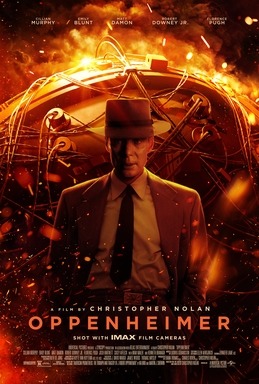
Oppenheimer--This biopic splits time the way its hero splits the atom. Narrative is fissionable to writer-director Christopher Nolan; he skips back and forth between episodes of Oppenheimer (Cillian Murphy) as a bumbling student, then as a philandering rising star in the new field of quantum physics, then as the determined yet haunted lord of Los Alamos, then as a post-bomb martyr to '50s era red-baiting. It glides along smoothly through its fractured scheme, beautifully shot by Hoyt van Hoytema in black and white and varyingly muted shades of color depending on period and point of view, and pushed along by a solemn Philip Glass-esque score by Ludwig Göransson.
Often crowned by a horizontal wide-brimmed preacher-style hat that makes him look like Brad Dourif in Wise Blood, Murphy uncannily captures the bursting, wide-eyed, near-ecstatic face that we see in photos of Oppenheimer. But he manages to give the performance a human dimension, with everyday foibles and touches of humor. He's not a pageant figure.
Murphy carries a star presence. But he's very ably supported by a huge, colorful gallery of star character players: Robert Downey Jr. as AEC Chairmen Lewis Strauss and Josh Hartnett as Ernest Lawrence and Benny Safdie as Edward Teller and Tom Conti as Albert Einstein and David Krumholtz as Isidore Rabi, Oppenheimer's menschy colleague who makes sure he eats and nudges his conscience, and Matthew Modine and Casey Affleck and Kenneth Branagh and Rami Malek and Alden Ehrenreich, to name only a few.
They're all entertaining, but two in particular jolt the movie to life: Florence Pugh as Oppenheimer's joyless lover Jean Tatlock and Matt Damon as the practical-minded, professionally unimpressed Leslie Groves, representing us laypeople in his deadpan, flummoxed scenes with Murphy. For a while it seems like Emily Blunt is underserved as Kitty Oppenheimer, but near the end she gets a juicy, angry scene opposite AEC lawyer Roger Robb (Jason Clarke), who has underestimated her.
Other than maybe a few too many scenes of the young "Oppie" having visions that look like the psychedelic mindtrip at the end of 2001, there was no point where I found Oppenheimer less than absorbing. Few would suggest that this ambitious, superbly acted, superbly crafted film isn't a major, compelling work, a vast expansion on Roland Joffé's watchable but modest Fat Man and Little Boy from 1989. If Nolan's film isn't quite completely satisfying, there could be two reasons.
One is that trying to arrive at a moral conclusion about this movie's hero seems impossible. Put (too) simply: on the one hand, Oppenheimer won World War II for the good guys and checked fascism (not checkmated it, alas) for more than half a century. On the other hand, his invention has the potential to ruin the world for everybody. Both can be true, and the ambiguity is unresolvable.
Another problem with the film, however, is a matter of simple showmanship. Back in 1994, James Cameron brought his silly action picture True Lies to a point where Arnold Schwarzenegger and Jamie Lee Curtis kiss while, far in the distance, we see a mushroom cloud erupt on the horizon. Triumphant, but then Cameron pushed his luck, piling on one last struggle with the villain in a Harrier jet. I remember thinking (and writing) at the time that when your hero and heroine kiss in front of a mushroom cloud, the movie is over.
Oppenheimer, obviously a very different movie, is uneasily structured in the same way. The scenes leading up to the Trinity Test at White Sands in 1945 are riveting, pulse pounding. The explosion and the immediate aftermath, ending the war in Japan, is a stunning dramatic climax.
But then the movie keeps going, for another hour or so, detailing the war of spite and will between Strauss and Oppenheimer, and the revocation of Oppenheimer's security clearance. It's interesting, provocative material in itself, but it seems a little petty and trivial after the "I am become death; destroyer of worlds" stuff. Given Nolan's supposed consummate skill at scrambling sequence, couldn't he have somehow structured the movie to end with a bang and not a whimper?
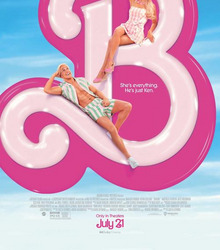
Barbie--Something is rotten in the state of Barbieland. As this, her first live-action feature begins, our titular heroine finds herself haunted, right in the middle of raging dance parties at her Dreamhouse, by thoughts of death. Still more alarming, when she steps out of her pumps, her feet go flat to the ground.
To be clear, the Barbie in question, played by Margot Robbie, is "Stereotypical Barbie," the blond, inhumanly thin and leggy iconic version of the Mattel doll. She shares the relentlessly cheery pink-plastic realm of Barbieland with countless other Barbies of every race and body shape and profession, all happy and accomplished and untroubled and mutually supportive. They're dimly aware of us in the "Real World"; they believe that their own harmony has created an example that has led to female empowerment and civil rights over here.
The Barbies also share Barbieland with Ken (Ryan Gosling) and countless variant Kens, as well as Ken's featureless friend Allan (a perfectly cast Michael Cera). But the guys exist entirely as accessories to the relatively uninterested Barbies. Ken's unrequited fascination with Barbie makes him subject, unlike the Barbies, to dissatisfaction.
Barbie goes for advice to "Weird Barbie" (Kate McKinnon), whose hair is frizzy and patchy and who's stuck in a permanent split. She's told that her troubles come from the dark feelings of somebody who's playing with her in our reality, so she sets out on a quest to the Real World, emerging in Venice Beach. Barbie connects with a mom and teenage daughter (America Ferrera and Ariana Greenblatt) whose relationship is strained; she's also pursued by the all-male board of Mattel, led by Will Ferrell. Ken, meanwhile, learns about our patriarchy, likes what he hears, and heads back to Barbieland alone to institute it, with himself at the top.
Mattel was founded in 1945, the same year as the Trinity Test, and there are probably feminist social critics who would argue that Barbie, invented in 1959 by Mattel co-founder Ruth Handler (well played by Rhea Perlman in the film), has wreaked only a little less havoc on the modern psyche than Oppenheimer's gadget. Even though I'm in exactly the right generational wheelhouse (I was born in 1962), my own childhood experience with Barbie was very limited, and thus so were my nostalgic associations with her.
Even so, this nutty fantasy, directed by Greta Gerwig from a brilliant script she wrote with Noah Baumbach, made me laugh from its inspired first scene to its Wings of Desire finish. Narrated in the droll, arch tones of Helen Mirren, it manages to come across as both an ingenious pop-culture lampoon/celebration and an unpretentious but surprisingly heartfelt deep dive into the implications of the Barbie archetype. I wasn't a big fan of Gerwig's 2019 version of Little Women, but here she builds her world with the freedom of, well, a kid playing with dolls, but also with the confidence and adult perspective of an artist.
Not everything in the movie works; in the second half the narrative gets a little lost at times in some very strange musical numbers/battle scenes, and the whole thing comes close to going on a bit too long. And it's hard to say just who this movie is for. It hardly seems intended for little girls; however smart, they're too young for the commentary about female identity to mean much to them yet. It seems more like it's meant for adult women with both a fondness for and an ambivalence toward Barbie.
No doubt there are those who would also complain that, however witty and self-effacing, the movie amounts to a feature-length commercial for the brand. But in the age of Marvel and other such franchises, it seems a little late to object to this.
The revelation in the film is Margot Robbie. It seems ridiculous that she's able, in the role of freaking Barbie, to give a performance of such subtlety and nuance and shading and quiet, unforced wistfulness, but she does. And she gets to deliver the best last line of the year.
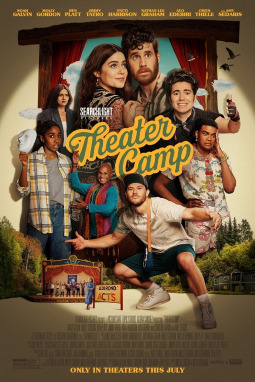
Theater Camp--Joan, the founder of "AndirondACTS," a slightly gone-to-seed theater camp in upstate New York, has fallen into a coma. The job of keeping the struggling camp afloat falls to her decidedly non-theatrical "crypto bro" son Troy. Meanwhile the devoted instructors work with the exuberantly happy campers to mount the shows, including an original musical about the life of poor comatose Joan (Amy Sedaris). Needless to say, all does not go smoothly.
The creators of this Waiting for Guffman-esque "mockumentary" comedy, Molly Gordon, Nick Lieberman, Ben Platt and Noah Galvin, know the world they're depicting well; all of them have been doing theater since they were small children. Gordon and Lieberman co-directed, from a script by all four; Platt and Gordon play Amos and Rebecca-Diane, the utterly enmeshed, co-dependent acting instructors and Galvin plays the low-profile tech director.
They capture the camaraderie and the sense of belonging that theater can give kids, and their affection for that world is unmistakable, but they're careful not to get too sentimental. The envies and resentments and passive-aggressive denigrations among theater folk, especially at this often professionally frustrated level, are vividly represented.
Getting laughs from the self-important vanities of theater people is pretty low-hanging fruit, I suppose, but Theater Camp is nonetheless often hilarious. The film also manages to get a little deeper at times, touching on the irony that while theater can create a haven and a community for misfit kids, this can generate its own clannishness and exclusionary snobbery, as in Amos and Rebecca-Diane's coldness toward the imbecilic but well-intentioned Troy, charmingly played by a sort of poor-man's Channing Tatum named Jimmy Tatro.
The real joy in Theater Camp, of course, is the acting: Platt, Gordon, Tatro, plus a few vets like Sedaris, Caroline Aaron and David Rasche bring the material to life. But as Glenn, the long-suffering backstage drudge who really ought to be onstage, Noah Galvin, who replaced Platt on Broadway in Dear Evan Hansen, is the revelation among the adults in the cast. He's a knockout.
The revelation among the kids playing the campers is, well, pretty much all of the kids playing the campers. There are some real singing, dancing and acting prodigies in this company. If there was a real theater camp somewhere with this kind of talent, their shows would sell out.
#oppenheimer#barbie#theater camp#greta gerwig#christopher nolan#margot robbie#cillian murphy#matt damon#florence pugh#emily blunt#ben platt#molly gordon#noah galvin#robert downey jr#ryan gosling#will ferrell#rami malek#kenneth branagh#tom conti#nick lieberman#jimmy tatro
12 notes
·
View notes
Text
'Like countless moviegoers around the world, I’m a major fan of Christopher Nolan’s “Oppenheimer.” But like many of those who saw it, I wasn’t alone in having qualifications about the last part of the movie. For me, the first two hours of “Oppenheimer” were electrifying. I felt the kind of full-scale mind/soul immersion that’s the definition of what we look for when we go to the movies. But in the last hour, I experienced a certain falling-off quality. I was still involved, but less involved. As the film kept returning to the 1954 hearing that resulted in Oppenheimer losing his security clearance, with Oppenheimer in the hot seat being hectored by a team of interrogators led by Jason Clarke’s special counsel to the AEC, I thought, “Why are we still at this damn hearing?” I asked because I didn’t know.
Now I do. A month or so after “Oppenheimer” opened, I went back and saw it again, and this time my qualifications evaporated. I was just as electrified as I’d been by the first two hours — only now that sensation didn’t end. The feeling of immersion lasted all three hours, right to the final shot. I’m a bit embarrassed to say this, since it means admitting that I didn’t get the film right the first time; as much as I raved about it in my Variety review, I would now rewrite the last part of that piece. But I’m even more fascinated by why I missed a crucial element of the movie.
“Oppenheimer” presents its title character as a totemic figure, a daring, mysterious, endlessly complicated renaissance genius who rose to his moment by envisioning and overseeing the creation of the atomic bomb. Cillian Murphy, in his mesmerizing performance, endows Oppenheimer with an all-knowing aristocratic dandy swagger. He makes him a singularly charismatic figure, a wizardly idealist who conjures up an awesome power and then grapples with the consequences of his actions. And since it feels as if Oppenheimer, at that hearing, is being persecuted (to a large extent for his earlier Communist ties), it was hard to watch it without feeling like I was on his side.
The movie, however, is not on his side. Not really. In the last hour, it’s deeply critical of Oppenheimer — as critical, I would say, as any major Hollywood biopic has ever been of its subject. And this is the road I didn’t fully let myself travel down the first time I saw “Oppenheimer.” The last hour was trying to me because I was fighting what the movie was.
I can say, with some surprise, that the final hour of “Oppenheimer” is now my favorite part of the movie. It’s the most morally dramatic and hypnotic — the true inquiry into who Oppenheimer was, and why he’s a hero who will always have an oversize asterisk next to his name.
The first time out, I thought I was watching a drama about the creation of the A-bomb. But as captivating as all that is — the science-lab frenzy, the race against the clock, the thorny politics of life in the makeshift city that was set up in the Los Alamos desert — the process by which Oppenheimer and his fellow brainiacs transformed nuclear fission into a weapon capable of delivering a nuclear apocalypse is not exactly the stuff of spoiler alerts. They gathered; they devoted themselves; they wondered if they were going to set the global atmosphere on fire; they triumphed.
Since “Oppenheimer” is a movie with a built-in big bang, I spent a lot of that first viewing anticipating what the Trinity Test would look and feel like. I still think it’s the one disappointing aspect of the film. Nolan fragments the bomb detonation (glaring light, rising hellfire), and in doing so he somehow fails to channel its viscerally terrifying and unprecedented largeness. That kind of threw me off.
Was the building of the atomic bomb justified? “Oppenheimer” says that it absolutely was. The Nazis were working on their own bomb, and Oppenheimer, who was Jewish, very much saw his mission as an attempt to save civilization by winning a weapons race that, had the Nazis won it, might have resulted in a level of devastation beyond the unthinkable.
But was the dropping of the atomic bomb justified? Given that the Nazis had been defeated before the decision was made (by President Truman) to drop the weapon on Hiroshima and Nagasaki, a powerful case could be made that it was not. Should Nolan have depicted the effects of the bomb on the Japanese, as Spike Lee suggested this week? I think that would have made “Oppenheimer” a very different movie, and not necessarily a better one. I’m not here to rehash that debate, but I’ll point out that Nolan’s film features Oppenheimer, speaking to a roomful of his Manhattan Project colleagues, cutting to a kind of cosmic justification for dropping the bomb. He says, in essence, that it will act as an inoculation, forever scaring off the human race from using the bomb by demonstrating its deathly horror.
Perhaps he was right. But this was still Oppenheimer’s Faustian bargain. He convinced himself that dropping the bomb was justified, maybe even necessary, but in doing so he was also acting out of an elaborate and convoluted self-interest. On some level he’d invented a new toy and desperately wanted to use it. Though it wasn’t his decision to use it, he distanced himself from the horror of that decision.
The rest of the movie is about how the horror comes crawling back. I certainly saw elements of that the first time. But I what I missed, in my kneejerk-old-school-liberal way, is that the 1954 hearing runs on and on not because the film is trying to demonstrate that Oppenheimer was “persecuted.” As much as the Communist associations he had in the ’30s come into play, the point is not to depict the hearing as a McCarthyite smear (even though, in fact, it kind of was).
No, the startling thing about the last hour of “Oppenheimer” is that it features two characters who seem to exist almost entirely to prosecute and torment our hero, and in both cases what they say about him is right. “Oppenheimer” shows us how J. Robert Oppenheimer was not so much a victim of history, or of an oppressive U.S. government, as he was a defensive narcissist crusader who spent his final years using the trigger of his guilt to cover himself in a kind of grand delusion.
Robert Downey Jr.’s performance as Lewis Strauss, the former head of the AEC who becomes Oppenheimer’s antagonist, is a stupendous outpouring of extemporaneous verbal energy (the actor is even more commanding without his irony than he is with it). But because Strauss is the person who stabbed Oppenheimer in the back, I assumed, the first time I saw the movie, that Nolan figured he needed some sort of villain, and that the virulent, hawkish Strauss was it. Strauss certainly had petty personal motives; the film returns several times to the Congressional hearing in which Oppenheimer publicly humiliated him with a flippant comment about radioisotopes. Yet the reason that Strauss, in certain ways, comes close to dominating the film’s last hour isn’t simply because we’re watching a bureaucrat take his vengeance. It’s because Strauss is the one who understands, and articulates, a crucial element of the film’s verdict on Oppenheimer: that he was a brilliant and self-glorifying celebrity who forged a mythology around himself, one that extended into his very crusade against the weapon he’d created.
Oppenheimer was the scientist who let the nuclear genie out of the bottle, but after the war he devoted his life to essentially saying, “Let’s try to put it back in.” Never realizing that this was hypocritical and unreal. In public, he’d mocked Strauss, and it was Strauss’s sleazy double dealing that was on trial during his own 1959 Senate confirmation hearing for Secretary of Commerce — the other hearing that’s featured in the movie.
But the reason that Strauss is in the movie, and the reason Downey should win the Oscar for best supporting actor for his performance, is the fantastic fervor with which he rakes Oppenheimer over the coals. Just because Strauss is rather scurrilous doesn’t mean that he’s wrong; he’s the one who has Oppenheimer’s number. And so does Jason Clarke’s Roger Robb, the AEC attorney who, in one of the film’s most cathartic moments, gives a speech in the 1954 hearing that excoriates Oppenheimer for the hypocrisy of his position on the hydrogen bomb: his denunciation of it as a monstrously overscaled weapon — but talk about the wrong messenger! Oppenheimer’s A-bomb was already an obscenely overscaled monster.
Christopher Nolan, in that inquiring last hour, has written all this into the movie, not because he wants to damn J. Robert Oppenheimer but because he wants to take the full measure of a 20th-century visionary who charged into the creation of the atomic bomb as if it were the science project of a lifetime — which it was — but had the luxury of not fully thinking through the implications of his actions. By the time he thought them through, he’d turned his criticism of America’s nuclear policy into a grandly repressed apology. He used the nuclear debate, and even his own martyrdom, to justify himself. But the way the movie portrays this doesn’t make it an attack on Oppenheimer. It makes “Oppenheimer” a piece of history that’s also a human exploration of the most exhilarating honesty.'
#Oppenheimer#Christopher Nolan#Lewis Strauss#Robert Downey Jr.#Oscars#Cillian Murphy#Trinity test#President Truman#Jason Clarke#Roger Robb
7 notes
·
View notes
Text
List of characters open for requests
Real Person Fic
Cillian Murphy
Domhnall Gleeson
Peaky Blinders
Thomas Shelby
Arthur Shelby
John Shelby
Ada Thorne
Esme Shelby
Polly Gray
Michael Gray
Alfie Solomons
May Carleton
Lizzie Stark
A Song of Ice and Fire Universe
Visenya Targaryen
Queen Rhaenys Targaryen
Rhaenyra Targaryen
Daemon Targaryen
Cregan Stark
Heleana Targaryen
Daenerys Targaryen
Sansa Stark
Margaery Tyrell
Robb Stark
DC Universe
Bruce Wayne
Jonathan Crane
Harley Quinn
Poison Ivy
Jason Todd
Star Wars
Qui-Gon Jinn
Obi-Wan Kenobi
Anakin Skywalker
Padmé Amidala
Leia Organa
General Hux
Kylo Ren
Rey
Others:
Literally any Cillian Murphy character (pls don’t make me list them all)
Majority of Domhnall Gleeson’s characters
If you do not see a character listed, feel free to send a request and I’ll let you know if I will write for them!💖
2 notes
·
View notes
Text
HOOOOBOY WE HAVE DEVELOPMENTS™
I forget who I’ve introduced so lemme just do this rq
We have Felicity Kirk who’s a reclusive hippie artist in her late 60s, Beth Eaton who’s a Londoner travel journalist in her early 50s, Julie Simon who’s a playfully demanding retired percussion professor in her 70s, and Stella Eaton who’s Beth’s daughter.
I now have headcanons of Donna Murphy as Felicity, Kate Winslet as Beth, AnnaSophia Robb as Stella and (since I would honestly love to see her play drums on film so I could treasure it forever) Debra Monk as Julie.
Felicity has a son named Bobby Dean
Julie and Felicity almost had a thing like 20 years ago. Julie says she hurt herself and that Felicity never hurt her. There wasn’t a “sadistic ploy to get [Julie] to fuck her.” She saw what she wanted to see in Felicity but that wasn’t who Felicity is. So nothing happened and even if there was a ploy Julie wouldn’t have fucked her. She was too much in the closet back then.
Stella’s a fashion photographer
Both Stella and Bobby Dean are addicts who overdosed
Beth was Julie’s student in the 80s. Julie has a drum set in her house. Beth had to sell hers when she had Stella but she kept the snare drum and played it while Stella was in a rehab facility after her overdose. When Beth learns of Bobby Dean’s overdose, she plays Julie’s set then calls Stella to tell her the news bc Stella never knew her mom played her snare. She only knew it was stashed in a closet and Beth never touched it.
Julie takes Beth fishing. She hates fishing. And she has nothing to wear except designer clothing. She ends up going in her panties and a tank top she slept in and stilettos.
Julie makes her own margaritas. They’re straight tequila with a squirt of lime juice and ice.
Julie and Beth get high in Julie’s hot tub. Julie’s naked during this. Beth has forgotten about Julie’s loathing of swimsuits and calls her a nudist. Julie retorts “only in the hot tub dear.”
Beth gets caught lurking on Julie’s porch at night with a cigarette in hand watching Felicity and her plaything of a girlfriend making out in Felicity’s hot tub. Naked. Felicity tells her gf to go inside then yells the half mile distance between her house and Julie’s house, “If you’re going to stare, can you at least do it behind a window shade?” (I like being naked in hot tubs. Can you tell?)
Julie doesn’t own a screen of any kind. Nor a digital clock. She’s entirely attachment free except for her landline. This irritates Felicity and she confronts Julie in the grocery store while Beth stands idly by. They have a good natured spat in the aisle and Julie introduces Felicity to Beth and Felicity says, “I know what a pain in the ass she is as a friend, but how was she as a drum instructor?” And Beth says, “A pain in the ass.”
I’m making everyone queer. Fuck it. The world needs more sapphics.
Half of this film came to me in 3 hrs today btw so I might be able to bang this out in a few days if the muses and characters keep it up.
Just bc I like having visuals here’s the mother/daughter casting idea


And the besties (who remarkably have similar fashion taste to the typical high desert shit we all wear here)
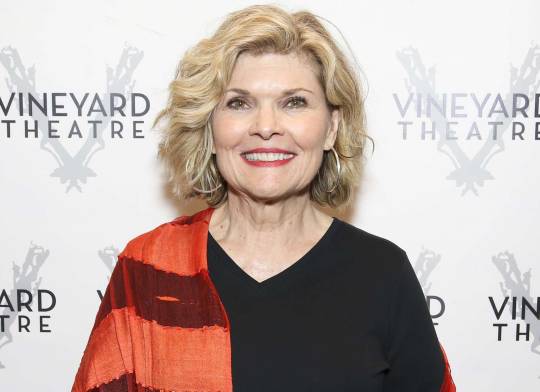
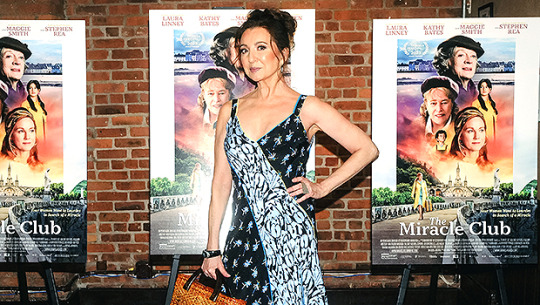
3 notes
·
View notes
Text

Robb Jewels and Brittany Murphy during the opening of the Victoria Jewels store, in Beverly Hills (2003).
#Brittany Murphy#Brittany Murphy Miss U#BrittanyMurphyMissU#instagram#event#2000s#2003#California#Beverly Hills#store#opening#Victoria Fine Jewel Company#Victoria Jewel#Victoria Fine Jewellery#beautiful#pretty#fun
4 notes
·
View notes